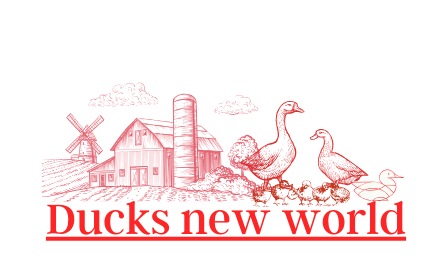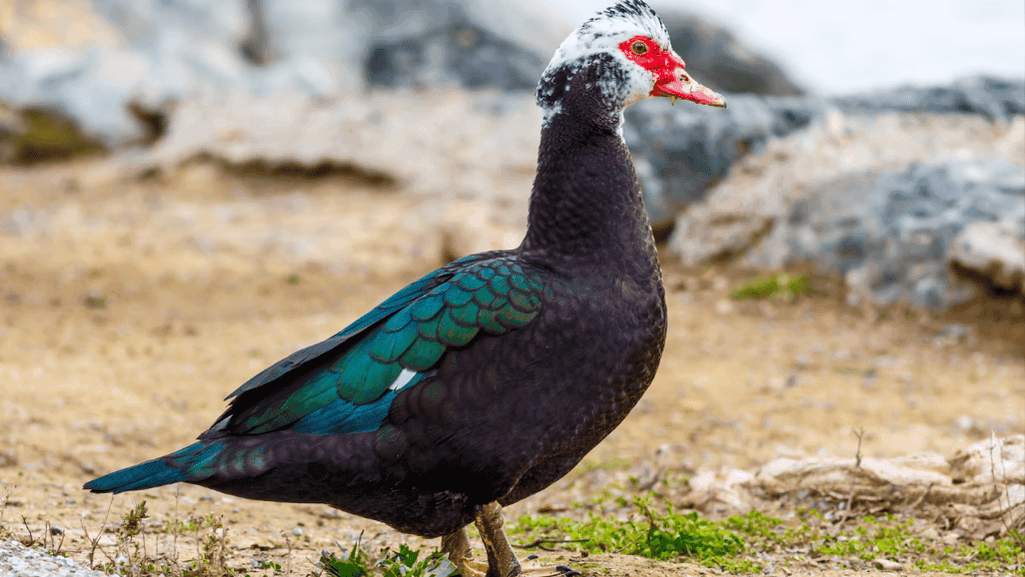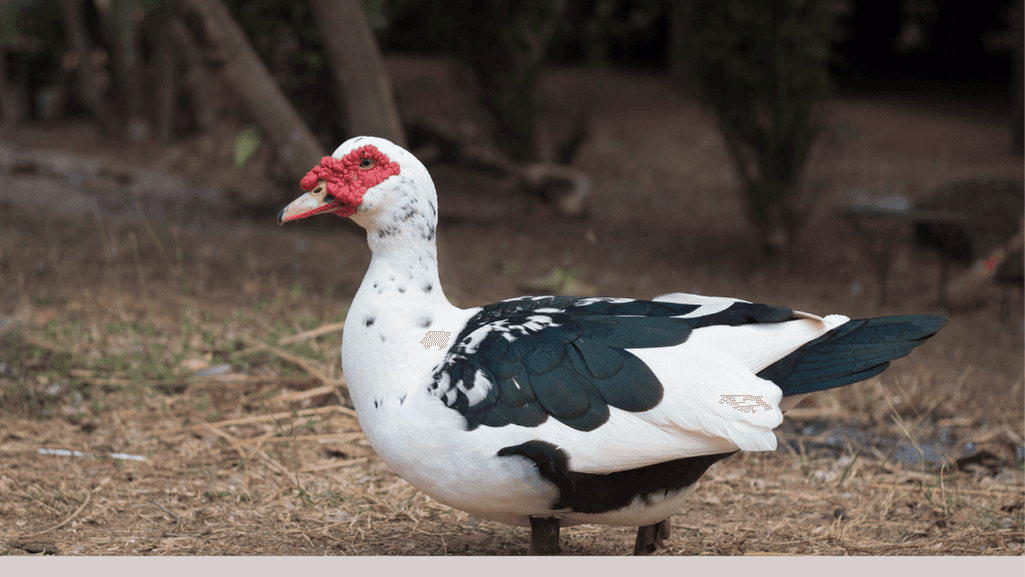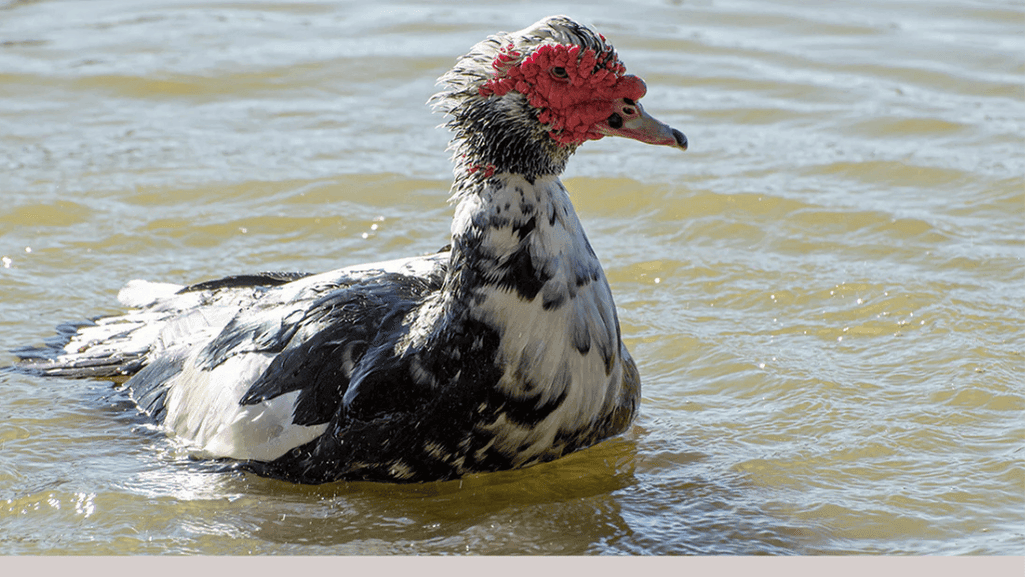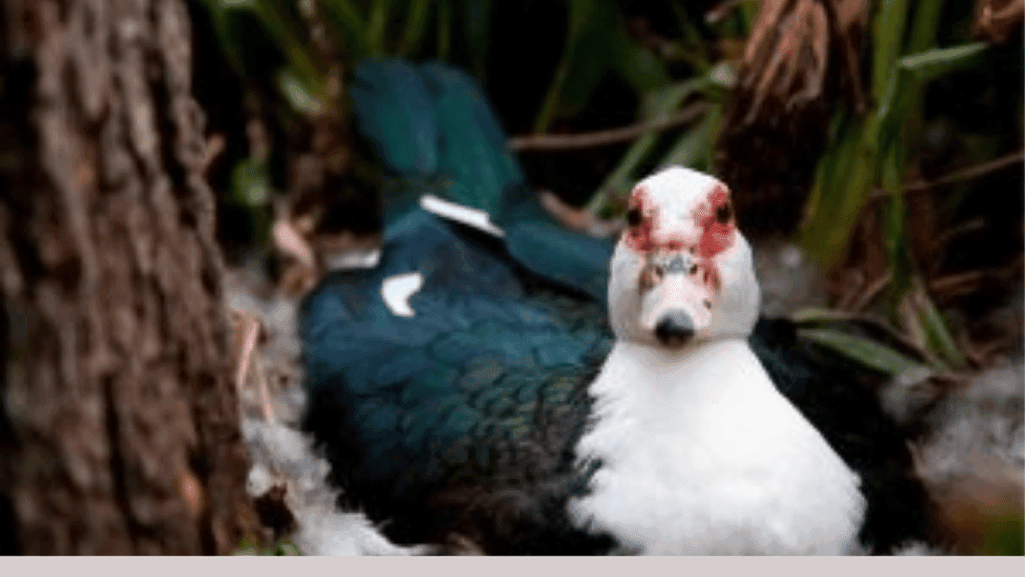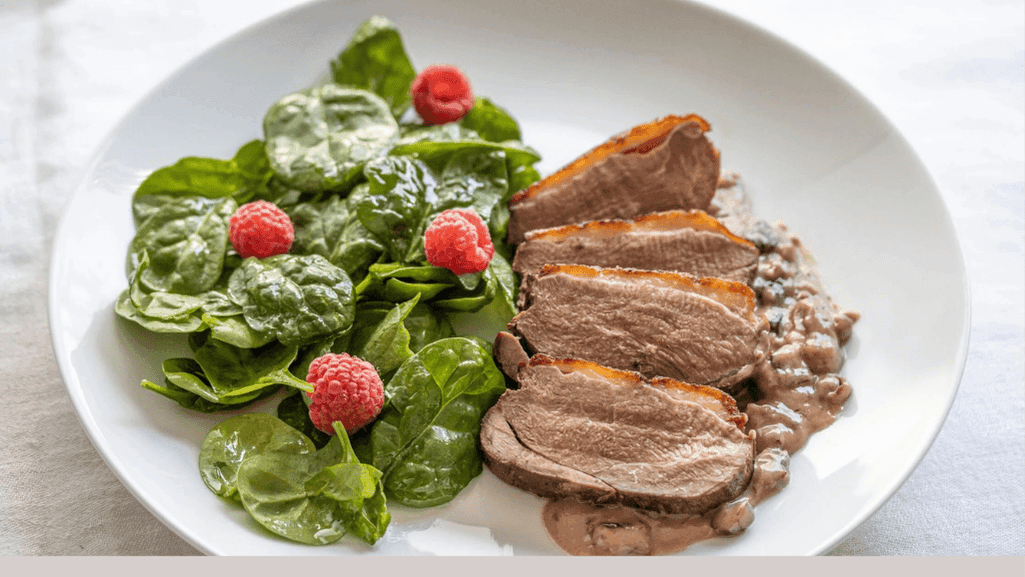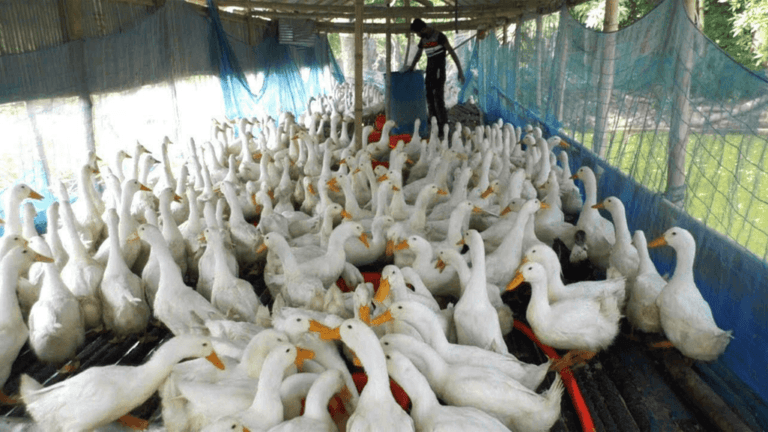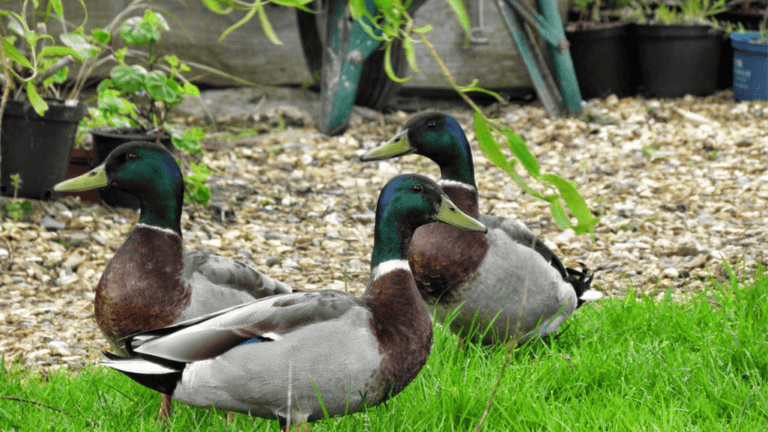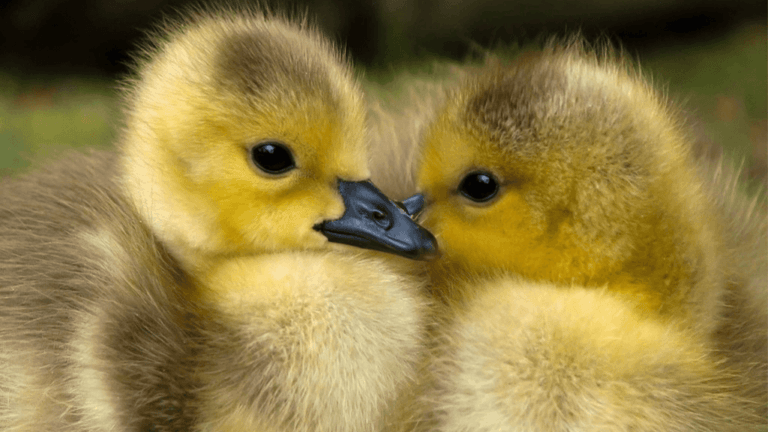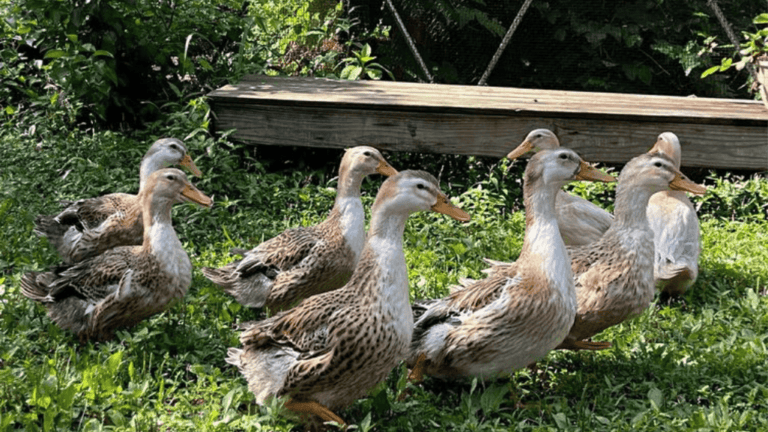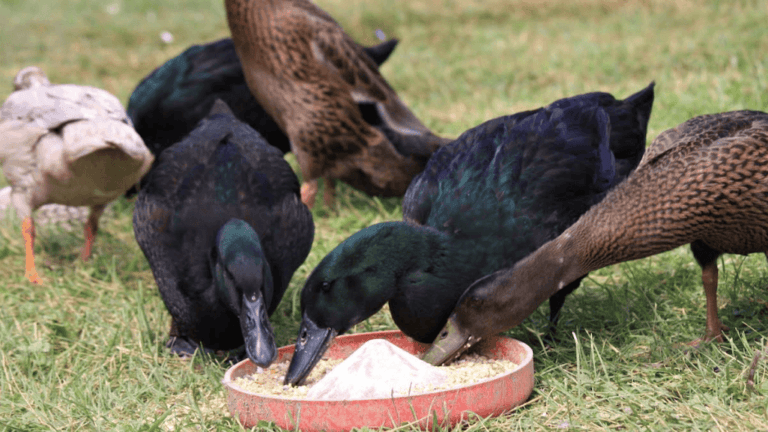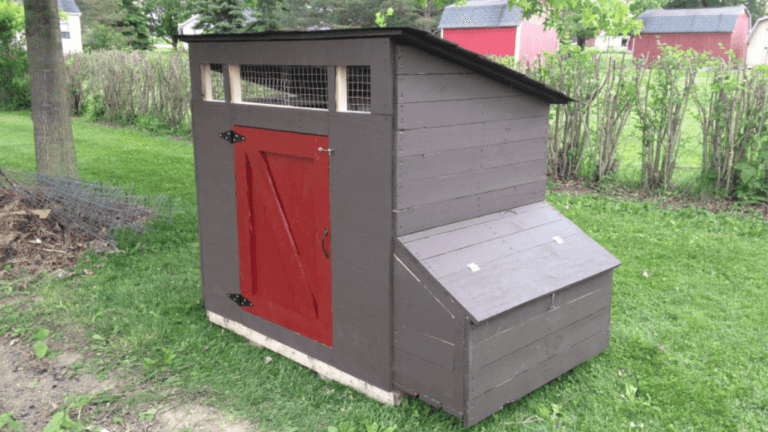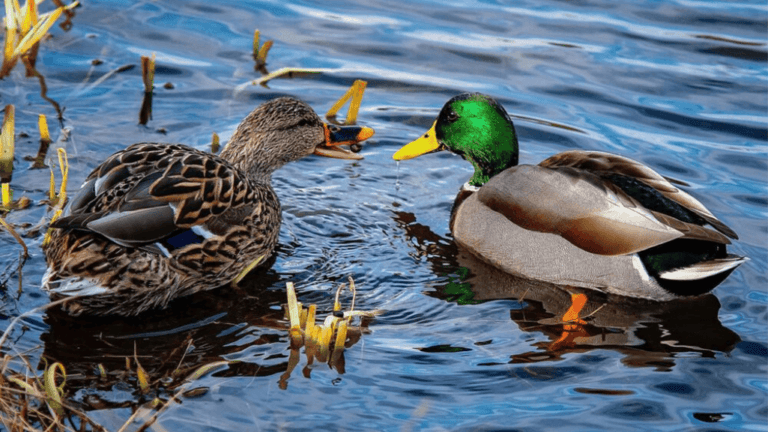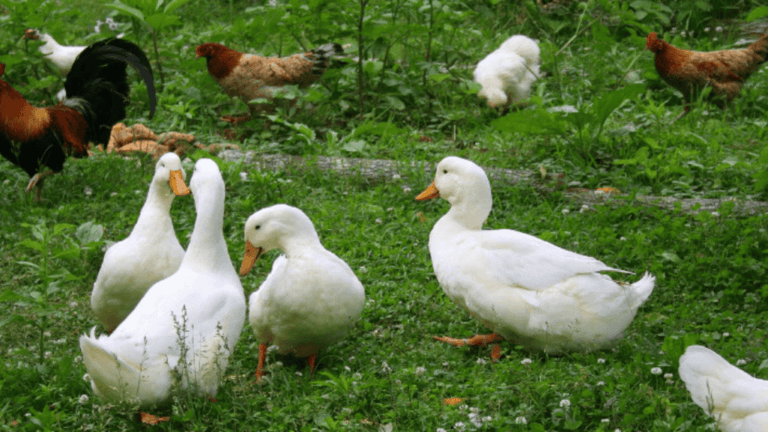Get ready to be amazed by the world of Muscovy ducks. They are a special breed of domestic ducks. Known as Cairina moschata, they have won the hearts of many. Their unique look, friendly nature, and ability to adapt make them a treasure to discover.
Muscovy ducks are different from other ducks because they come from South America. They are the only domesticated duck not from the mallard. Their hardiness and quietness make them great friends for any backyard or small farm. They give tasty eggs and meat, and they also help control pests by eating flies and mosquitoes.
As you learn more about Muscovy ducks, you’ll be amazed by their special traits and benefits. They are perfect for both experienced farmers and new duck keepers. Muscovy ducks will surely make a big impact and add joy to your life.
Key Takeaways
- Muscovy ducks are a unique breed originating from South America, not descended from mallards
- They are known for their quiet and friendly nature, making them excellent backyard companions
- Muscovy ducks provide natural pest control by actively hunting flies and mosquitoes
- These versatile birds offer both delectable eggs and lean, flavorful meat
- Muscovy ducks are hardy and adaptable, thriving in various environments and climates
Unveiling the Unique Charm of Muscovy Ducks
Muscovy ducks have a special charm that makes them stand out. They are friendly and quiet, chirping and hissing instead of quacking. This makes them perfect for backyard keepers who don’t want to disturb neighbors. They also love to meet people, often waddling up to say hello.
These ducks are easy to care for and help control pests. They enjoy hunting flies and mosquitoes. Muscovy ducks value love, partnership, and family, living in harmony with each other. They even mate for more than one season, showing their loyalty and devotion.
Spiritual symbolism links ducks to Air and Water Elements. Muscovy ducks make a unique sound to avoid predators. This shows their smartness and awareness of their surroundings.
Researchers and conservationists are interested in Muscovy ducks. Ducks New World focuses on their importance and beauty. By appreciating Muscovy ducks, we can connect more with nature.
Embrace the enchanting qualities of Muscovy ducks and experience the joy they bring to any backyard or farm setting.
Origins and History of Muscovy Ducks
Muscovy ducks, also known as Cairina moschata, have a rich history. They have traveled across centuries and continents. These South American ducks have caught human attention with their unique looks and useful traits. This has led to their domestication and spread worldwide.
Native to South America
Muscovy ducks come from the forested areas of South and Central America. They live in places like Peru, Ecuador, Colombia, and Panama. These birds have learned to live in different environments, from rainforests to wetlands.
Studies from the 21st century show the genetic makeup of Muscovy ducks. They found a variety of genetic types in their native lands. But, in China, there are only a few genetic types, showing a single domestication event likely in South or Central America.
Domestication and Spread Across the World
The history of Muscovy duck domestication starts with ancient South American cultures. The Mochica culture in Peru began keeping them around 50 CE. From there, ducks spread to Ecuador’s coast by 80 CE, Bolivia between 600-1000 CE, and Central America by 750-950 CE.
European explorers and traders brought Muscovy ducks to new lands. This movement grew during the Age of Exploration. Now, you can find them on farms, in parks, and in backyards across North America, Europe, and more.
| Region | Domestication Timeline |
|---|---|
| Peru (Mochica culture) | Around 50 CE |
| Coastal Ecuador | By 80 CE |
| Bolivia | Between 600-1000 CE |
| Central America | Between 750-950 CE |
Muscovy ducks have formed feral populations in places like Florida and Texas. These groups have grown, adapting to city and suburban life. However, they can be a challenge for people due to their territorial and breeding habits.
Muscovy ducks are among the oldest domesticated birds. They have greatly impacted many communities, offering food, income, and friendship. Their journey from South America to farms and homes worldwide shows their strength and the special bond with humans.
Physical Characteristics and Appearance
Muscovy ducks are unique and fascinating. They have distinct physical traits that make them stand out. Their appearance is captivating, with striking features and varied plumage colors.
Distinct Facial Features and Caruncles
Muscovy ducks have caruncles, red warty growths on their faces. These are more noticeable in males and can change color in females during brooding. The red caruncles against their feathers create a unique look.
To learn more about Muscovy ducks, visit Ducks New World. They offer expert insights and resources.
Size and Weight Differences Between Males and Females
Muscovy ducks show significant size and weight differences between males and females. Adult males can weigh up to 15 pounds, making them the largest ducks in the world. Females weigh between 6 and 7 pounds, about half as much as males.
This size difference is also seen in their necks. Males have long necks, making them look like small geese.
| Gender | Weight Range | Relative Size |
|---|---|---|
| Male | Up to 15 pounds | Largest duck species |
| Female | 6-7 pounds | About half the weight of males |
Color Variations and Plumage
Muscovy ducks come in a wide range of colors. Wild ones are mostly black with white wing patches. Domestic and feral types show colors like white, black, blue, green, barred, rippled, and chocolate.
The colors create a stunning spectrum. This highlights the uniqueness of each duck. Whether you’re a duck breeder or just appreciate their beauty, their colors are captivating.
Muscovy ducks also have other remarkable traits. Males have a feather crest and a knob at the bill base. They also have carunculated skin on their faces. These traits add to their unique appearance and play roles in their social and mating behaviors.
To learn more about Muscovy ducks, check out the resources at Ducks New World.
Behavioral Traits and Personality
Muscovy ducks are a true delight, captivating hearts with their gentle personalities and unique traits. These friendly ducks are calm and peaceful, perfect for any backyard. Unlike other ducks, Muscovies are less vocal, using soft hissing and cooing sounds instead of quacking.
One of the most remarkable aspects of Muscovy duck behavior is their exceptional foraging skills. These curious and intelligent birds are always on the lookout for tasty treats. They search for insects, slugs, and snails, taking great pleasure in exploring their surroundings.
This natural foraging instinct keeps them entertained and mentally stimulated. It also provides a valuable service to their environment by controlling insect populations.
Quiet and Friendly Nature
Muscovy ducks are known for their gentle temperament and affectionate nature. They can form close bonds with their human caretakers, often approaching them with curiosity. These friendly ducks are not only a joy to observe but also make wonderful companions in a backyard setting.
Their calm demeanor and low-key personality create a peaceful atmosphere. This makes them an ideal choice for those seeking a tranquil outdoor space.
Excellent Foragers and Fly Hunters
One of the most impressive aspects of Muscovy duck behavior is their exceptional foraging abilities. These skilled hunters are particularly adept at catching flies and mosquitoes. This makes them an excellent choice for natural pest control.
By actively seeking out and consuming these insects, Muscovies help maintain a balanced ecosystem. They also enjoy feasting on leftovers and layer feed, ensuring that nothing goes to waste.
| Foraging Behavior | Benefits |
|---|---|
| Actively seek out insects, slugs, and snails | Provide natural pest control |
| Skilled at catching flies and mosquitoes | Maintain a balanced ecosystem |
| Enjoy leftovers and layer feed | Reduce food waste |
In conclusion, Muscovy ducks are a true gem in the world of backyard poultry. Their gentle personalities, exceptional foraging skills, and natural pest control abilities make them an invaluable addition to any outdoor space. By embracing the unique traits and personalities of these friendly ducks, we can create a harmonious and thriving environment that benefits both the ducks and their human companions.
Muscovy Ducks as Efficient Egg Layers
Muscovy ducks may not lay as many eggs as some other breeds. But, they offer rich and creamy eggs that are highly valued. They can lay up to 180 eggs a year, making them good layers.
Muscovy duck eggs are known for their large size and smooth texture. They are loved by bakers and chefs for their rich flavor and creamy feel. Even though they lay eggs only from spring to autumn, they still provide plenty of eggs for those who keep backyard poultry.
Duck eggs taste richer and have a unique composition compared to chicken eggs. They are great for baking because of their high fat content. This makes baked goods fluffier and more moist. If you want to try something new or add variety to your eggs, Muscovy duck eggs are a great choice.
| Duck Breed | Average Egg Production per Year |
|---|---|
| Muscovy | 180 |
| Khaki Campbell | 250-340 |
| Indian Runner | 200-300 |
| Golden 300 Hybrid | 290-330 |
Muscovy ducks may not lay the most eggs, but their eggs are still a great addition. As you start your Muscovy duck journey, you’ll enjoy their rich and creamy eggs.
Ducks, including Muscovies, need clean water for eating, washing, and swimming. They also lay eggs in different places, making egg collection and freshness monitoring harder than with chickens.
It’s smart to try duck eggs first to see if you like them. Some people find them too rich or have sensitivities. So, start small and see how they work for you.
Muscovy Duck Meat: A Lean and Flavorful Delicacy
Muscovy ducks are loved for their looks and friendly nature. They are also prized for their high-quality meat. This lean poultry is popular among those who care about health and enjoy good food.
Superior Meat Quality Compared to Other Duck Breeds
Muscovy ducks are top-notch for meat. Their meat is very lean, with almost no fat. This makes it a great choice for a healthy diet.
Compared to turkey, Muscovy duck meat has fewer calories and fat. Yet, it still tastes great. The meat is tender and tastes like veal, unlike other ducks.
| Breed | Meat Yield | Fat Content | Flavor Profile |
|---|---|---|---|
| Muscovy Duck | Highest among duck breeds | Less than 2% fat | Lean, tender, veal-like taste |
| Pekin Duck | Moderate | Higher fat content | Mild, less distinct flavor |
| Mallard Duck | Lower | Moderate fat content | Gamey, rich flavor |
Culinary Applications and Recipes
Muscovy duck meat is great for many dishes. It’s lean and flavorful, making any meal special. Here are some tasty ways to use it:
- Slow-roasted Muscovy duck with crispy skin and succulent meat
- Muscovy duck breast seared and served with a fruity sauce
- Shredded Muscovy duck meat in salads, sandwiches, or wraps
- Muscovy duck leg confit for a rich and indulgent treat
- Stir-fried Muscovy duck with vegetables for a lean and flavorful meal
Both home cooks and chefs can get creative with Muscovy duck meat. It’s a lean protein that adds flavor to any dish. It’s a great choice for a healthy and tasty meal.
Raising and Caring for Muscovy Ducks
Raising Muscovy ducks is a rewarding journey filled with joy and wonder. These birds have a unique charm and personality that will capture your heart. To ensure they thrive, provide proper duck care, including suitable housing, a balanced diet, and regular health checks.
Housing and Shelter Requirements
Muscovy ducks need specific housing to be comfortable and safe. They prefer to roost off the ground, so elevated platforms or perches are crucial. A secure and spacious shelter that protects them from predators and harsh weather is essential. Remember, they can withstand temperatures as low as 0°F but thrive in warmer climates. For more information, visit Ducks New World.
Feeding and Nutrition
Feeding ducks a balanced diet is key to their health. Muscovy ducks thrive on commercial duck feed, fresh greens, and insects. They are excellent foragers, helping reduce insect populations. A small water source, like a shallow pool or trough, is needed for their hygiene.
Health Concerns and Preventive Measures
Maintaining optimal duck health is crucial. Regular health checks and preventive measures, like vaccinations and parasite control, are essential. As a responsible owner, familiarize yourself with common health issues and address them promptly. This ensures your ducks live long, healthy, and happy lives.
In summary, raising Muscovy ducks is an incredible adventure. It requires dedication, love, and proper care. By providing a comfortable home, balanced diet, and regular health care, you’ll be rewarded with their affection. Embrace the wonders of Muscovy ducks and discover the joy they bring to your life.
Muscovy Ducks as Pets and Backyard Companions
Muscovy ducks are great for their tasty meat and eggs. They are also wonderful pets and backyard friends. Their friendly nature and unique looks make them fun to have around.
Building a Bond with Your Muscovy Ducks
Keeping Muscovy ducks is rewarding because you can bond with them. Spend time with them, give treats, and handle them gently. This builds trust.
- Hand-feeding them treats like mealworms or greens
- Sitting quietly near them, letting them come to you
- Gently petting them and speaking softly
- Creating a safe, comfy place for them
As you bond, your ducks will come to greet you. They’ll look forward to your attention and love.
Integrating Muscovy Ducks with Other Poultry
Muscovy ducks are great pets and fit well with other birds. They are calm and adapt easily. When adding them to your flock, remember:
- Make sure all birds have enough space
- Use separate feeding and water stations
- Introduce new birds slowly
- Watch for any signs of trouble
Muscovy ducks usually get along with other birds. But watch for signs of trouble, especially during breeding season.
| Poultry Type | Compatibility with Muscovy Ducks | Key Considerations |
|---|---|---|
| Chickens | High | Ensure adequate space and separate roosting areas |
| Other Duck Breeds | Moderate to High | Provide ample water sources and monitor mating behavior |
| Geese | Moderate | Introduce gradually and watch for signs of aggression |
| Turkeys | Moderate to High | Ensure adequate space and separate feeding areas |
By integrating Muscovy ducks with other birds, you can create a happy backyard flock. This brings joy and companionship to your life.
Conclusion
Muscovy ducks have won the hearts of many around the world. They are great for backyard duck keeping. They can reproduce a lot and live well in many places, like North America and Asia.
Even though they are seen as invasive in the U.S., they are loved by many. Domesticated Muscovy ducks are big and heavy, making them a tasty meat choice. Their meat tastes like beef, which is different from chicken.
Muscovy ducks also give bigger and richer eggs than chickens. They are good at eating table scraps and bugs. They grow faster than chickens and are worth the extra care. If you want eggs, meat, or a fun backyard pet, Muscovy ducks are perfect.
